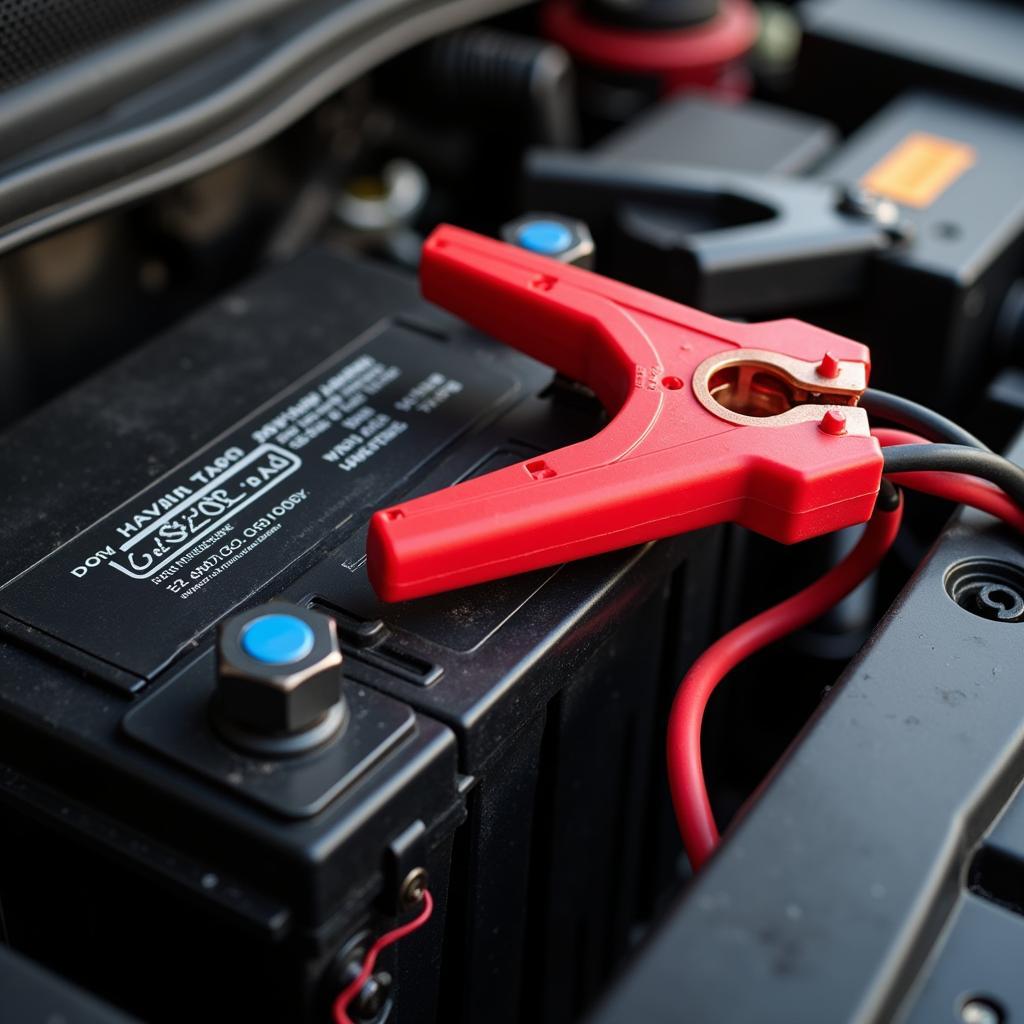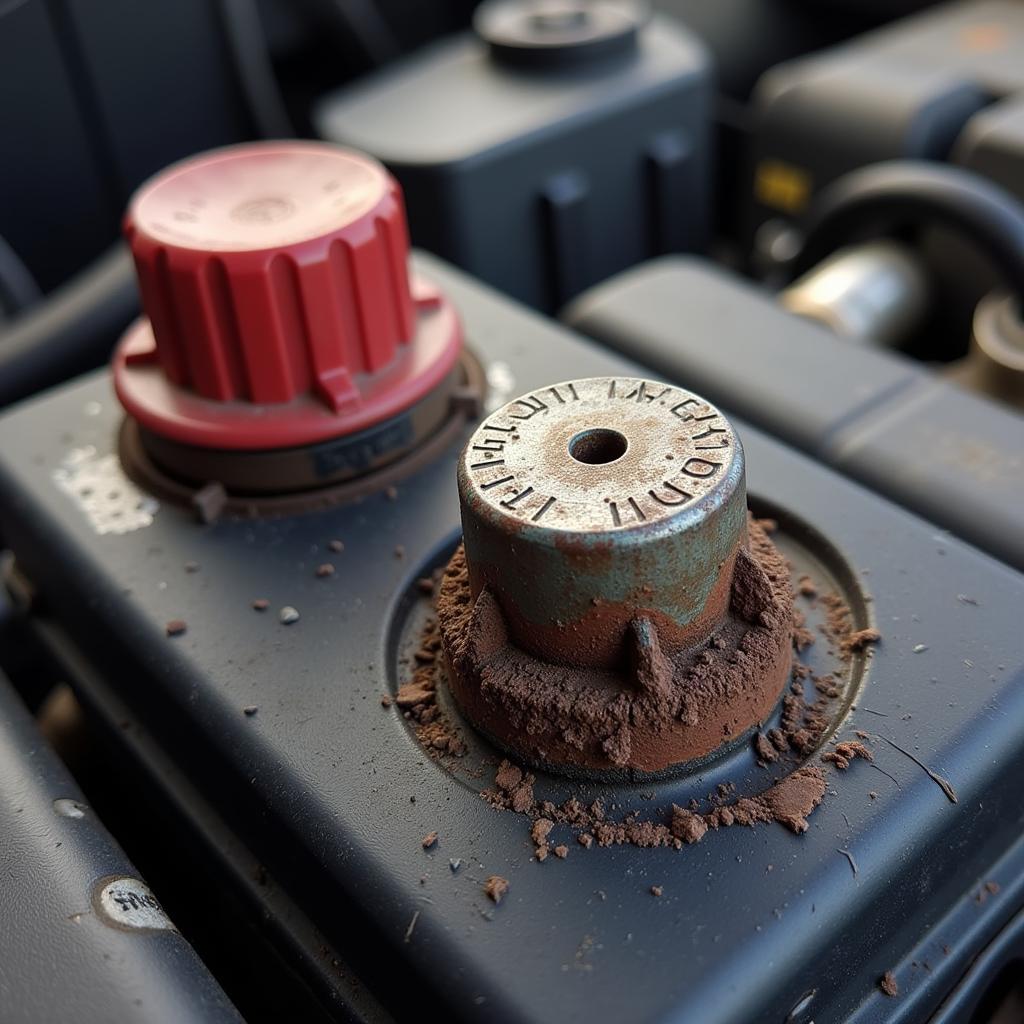If you’re not driving your car regularly, you might be wondering, “Will my car battery go flat if not driven?” The answer, unfortunately, is yes. Even when your car is off, your battery is still powering essential systems, slowly draining its charge. Let’s delve into the reasons why this happens and how you can prevent it.
 Car Battery Draining While Parked
Car Battery Draining While Parked
Why Does a Car Battery Discharge When Not in Use?
Even when the ignition is off, several systems in your car continue to draw power from the battery, contributing to what’s known as “parasitic drain.” These systems include the clock, the alarm system, the radio memory, and the computer modules that control various functions. While the draw from each individual system is small, it adds up over time, especially if your car sits unused for extended periods. Modern vehicles with more sophisticated electronics are particularly susceptible to this issue.
Furthermore, batteries naturally self-discharge over time due to chemical reactions within the battery itself. This self-discharge rate is accelerated by extreme temperatures, both hot and cold.
Have you ever experienced the frustration of a “Service Brake System Warning and Stabilitrak Off” message? Sometimes, a low battery voltage can trigger seemingly unrelated warning lights, emphasizing the importance of maintaining a healthy battery. You can find more information about this specific issue on our page about service brake system warning and stabilitrak off.
How Long Can a Car Battery Sit Undriven?
The time it takes for a car battery to go flat when not driven varies depending on several factors, including the age and condition of the battery, the ambient temperature, and the amount of parasitic drain. Generally, a healthy battery can sit unused for two to three weeks without significant discharge. However, older batteries, those in extreme temperatures, or those in vehicles with high parasitic drain can discharge much faster, sometimes in as little as a week.
 Car Battery Age and Condition
Car Battery Age and Condition
How to Prevent Car Battery Discharge When Not Driving
There are several steps you can take to prevent your car battery from going flat when not in use:
- Drive Regularly: The most effective way to keep your battery charged is to drive your car regularly. Even a short drive once a week can be enough to top off the charge and prevent significant discharge.
- Disconnect the Battery: If you plan to leave your car unused for an extended period, consider disconnecting the negative battery terminal. This will eliminate parasitic drain entirely.
- Use a Battery Maintainer: A battery maintainer, also known as a trickle charger, provides a small current to keep the battery topped off without overcharging. This is a great option for cars stored for long periods or those driven infrequently.
- Reduce Parasitic Drain: Identify and minimize sources of parasitic drain. For instance, make sure interior lights are turned off and unplug any accessories when not in use.
- Check Your Battery Regularly: Regularly inspect your battery for signs of corrosion or damage. Clean corroded terminals with a baking soda and water solution.
If you’re dealing with various battery draining car problems, you might find this resource helpful: battery draining car problems.
What are the Signs of a Low Car Battery?
- Slow Cranking: The engine cranks slowly or struggles to turn over.
- Dim Headlights: Headlights appear dimmer than usual, especially when the engine is idling.
- Electrical Malfunctions: Interior lights, power windows, and other electrical accessories may not function properly.
- Warning Lights: The check engine light or other warning lights may illuminate.
“A proactive approach to battery maintenance can save you a lot of headaches down the road,” says John Smith, Senior Automotive Technician at Smith Automotive. “Regular checks and preventative measures can significantly extend the life of your battery.”
Conclusion
So, will your car battery go flat if not driven? Yes, it can. However, by understanding the factors that contribute to battery discharge and taking preventative measures, you can ensure your car starts reliably every time, even after periods of inactivity. Remember to drive regularly, disconnect the battery for extended storage, or use a battery maintainer. Don’t wait until you’re stranded with a dead battery. Be proactive and keep your car battery healthy!
If you’re experiencing issues with your dashboard warning lights, particularly on a Seat Ibiza, you might find this article helpful: dashboard warning lights seat ibiza. It provides valuable insights into common warning light problems and their solutions.


